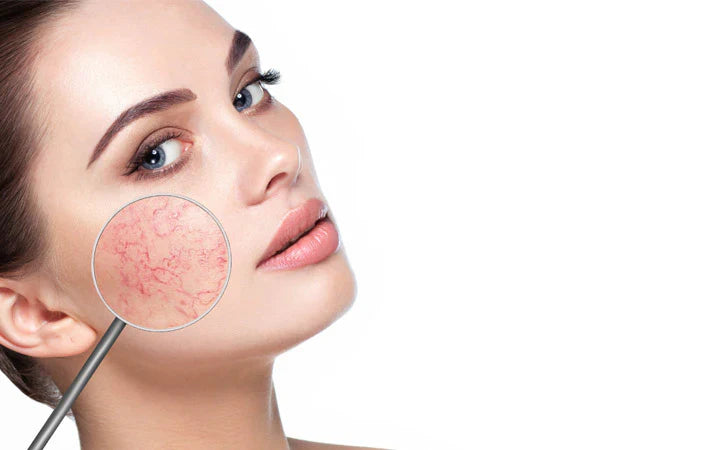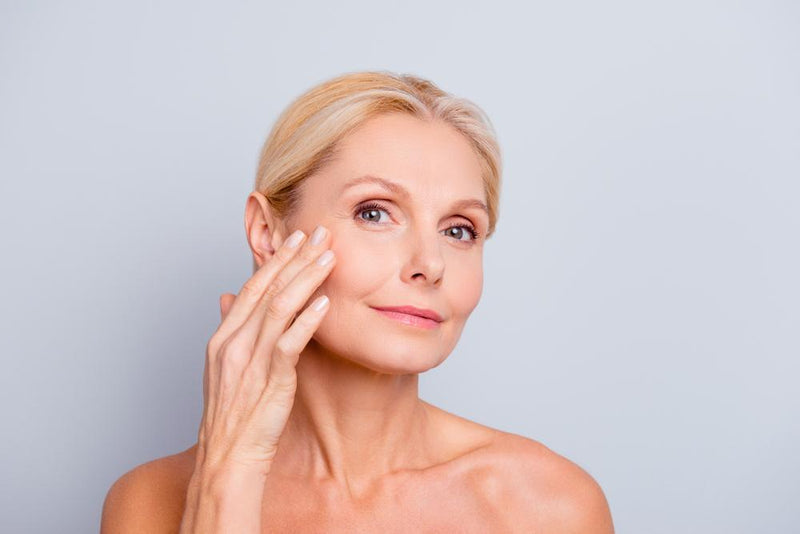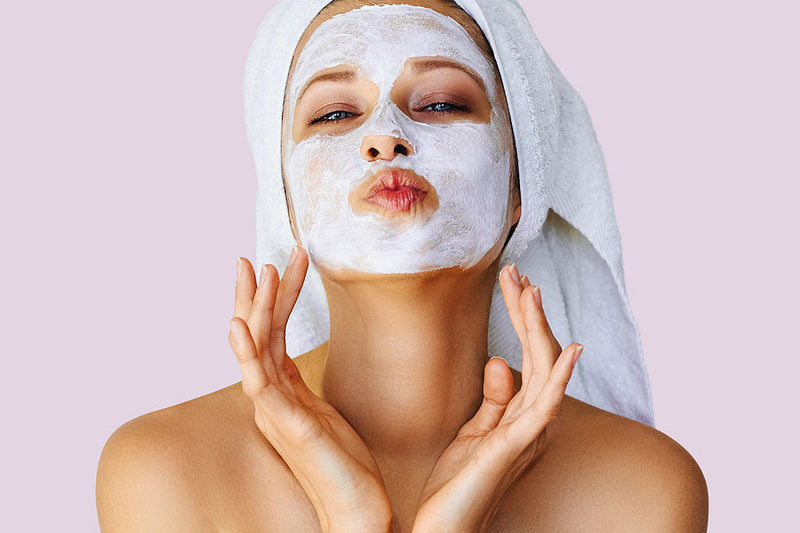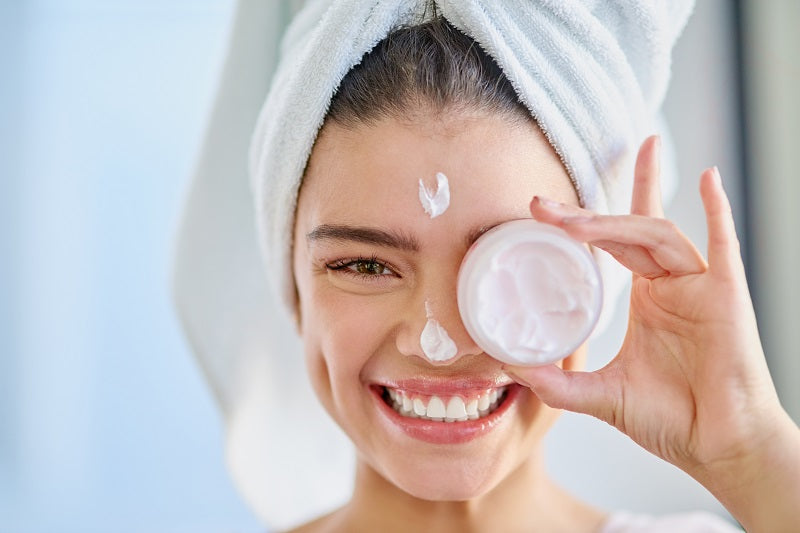

5 Skincare Mistakes That Are Secretly Aging Your Skin (And How to Fix Them)
Everyone desires radiant, youthful skin—but surprisingly, many of us unknowingly sabotage our complexion through common skincare missteps. These seemingly harmless habits can accelerate the aging process, leading to fine lines, wrinkles, uneven texture, and dullness. The good news? With a few strategic adjustments to your daily routine, you can reverse this damage and restore your skin's natural vitality.
Skin health isn't just about the products you apply—it's deeply connected to your lifestyle choices, environmental exposure, and daily habits. Understanding which practices are working against you—and replacing them with science-backed alternatives—can make a dramatic difference in your skin's appearance and resilience. This comprehensive guide reveals the five most damaging skincare mistakes people make (often without realizing it) and provides actionable solutions to help you achieve truly youthful, glowing skin.
Mistake 1: Skipping Sunscreen Daily
Not wearing sunscreen is arguably the single biggest mistake contributing to premature skin aging. UV radiation from the sun penetrates deep into the skin, damaging collagen and elastin fibers—the very structures responsible for keeping skin firm and smooth. Even on cloudy days or when indoors near windows, up to 80% of UV rays can still reach your skin, causing cumulative damage that manifests as fine lines, wrinkles, hyperpigmentation, and loss of elasticity.
The misconception that "I don't need sunscreen if I'm not going outside" or "I have dark skin so I'm protected" is dangerously misleading. All skin types require daily sun protection, regardless of weather conditions or melanin levels. UV exposure is responsible for up to 90% of visible skin aging, making sunscreen not just a summer essential but a year-round non-negotiable.
The Solution: Make Sunscreen Your Non-Negotiable Morning Step
Apply a broad-spectrum sunscreen with SPF 30 or higher every single morning, even on cloudy days or when staying indoors. Look for formulations that combine UVA/UVB protection with antioxidants like vitamin C or E for enhanced defense against free radicals generated by UV exposure.
- Reapply regularly: Every 2-3 hours during prolonged outdoor exposure, especially after sweating or swimming
- Don't forget key areas: Neck, décolletage, ears, and hands often get neglected but show aging signs prominently
- Layer strategically: Apply sunscreen as the final step in your morning skincare routine, before makeup
- Choose wisely: Opt for lightweight, non-comedogenic formulas that won't clog pores or feel heavy on the skin
For maximum protection, combine sunscreen with physical barriers like wide-brimmed hats, sunglasses, and protective clothing. Remember, sunscreen isn't just about preventing sunburn—it's your most powerful anti-aging tool available.
Mistake 2: Over-Cleansing Your Skin
Many believe that washing their face multiple times a day—or using harsh, stripping cleansers—will keep their skin "cleaner." In reality, excessive cleansing disrupts the skin's natural barrier function, removing essential lipids and oils that maintain moisture balance. This leads to dryness, irritation, increased sensitivity, and ironically, more oil production as the skin tries to compensate for its depleted state.
Over-cleansing also compromises the skin's microbiome—the delicate ecosystem of beneficial bacteria that helps protect against pathogens and inflammation. When this balance is disrupted, skin becomes more vulnerable to environmental stressors, breakouts, and accelerated aging. The result? Dull, tight-feeling skin that appears prematurely aged and lacks resilience.
The Solution: Gentle Cleansing Twice Daily
Limit face washing to twice daily—morning and evening—with a gentle, pH-balanced cleanser formulated for your specific skin type. Avoid foaming or sulfated formulas that create excessive lather, as these tend to be more stripping.
- Dry skin: Choose cream-based or milky cleansers that nourish while cleansing
- Oily skin: Opt for lightweight gel or foam cleansers that remove excess sebum without over-drying
- Sensitive skin: Use fragrance-free, non-foaming formulas with soothing ingredients like ceramides or oat extract
- Always follow with moisturizer: Lock in hydration immediately after cleansing to reinforce the skin barrier
Consider double cleansing at night if you wear makeup or sunscreen: start with an oil-based cleanser to dissolve impurities, then follow with a water-based cleanser for thorough removal. This approach ensures clean skin without compromising its natural protective functions.
Mistake 3: Neglecting Proper Hydration
Hydration is often misunderstood as simply drinking water, but true skin hydration involves maintaining optimal moisture levels within the epidermis. Many people skip moisturizers entirely or use lightweight products that don't provide adequate hydration for their skin type. Dry, dehydrated skin appears dull, flaky, and accentuates fine lines and wrinkles, making you look older than you are.
Environmental factors like heating systems, air conditioning, pollution, and seasonal changes can rapidly deplete skin moisture. Without proper hydration, skin loses its plumpness and elasticity, becoming more susceptible to damage and slower to repair itself. The solution isn't just about applying any moisturizer—it's about choosing the right formulation for your skin's needs and layering strategically.
The Solution: Strategic Hydration Layering
Implement a multi-step hydration approach that addresses both surface moisture and deeper nourishment. Start with humectants to draw water into the skin, followed by emollients to smooth and soften, and finally occlusives to seal everything in.
- Morning routine: Apply hyaluronic acid serum on damp skin, followed by a lightweight moisturizer with antioxidant protection
- Night routine: Layer hydrating serum with a richer cream containing ceramides, fatty acids, or plant oils to support overnight repair
- Weekly boost: Incorporate hydrating masks 1-2 times weekly for intensive moisture replenishment
- Internal hydration: Drink at least 8 glasses of water daily and consume water-rich fruits and vegetables
Look for ingredients like hyaluronic acid (which can hold 1,000 times its weight in water), glycerin, ceramides, squalane, and niacinamide—all proven to enhance skin hydration and barrier function. Consistent hydration not only improves texture and reduces fine lines but also enhances overall skin radiance and resilience.
Mistake 4: Sleeping with Makeup On
Perhaps one of the most common—and damaging—habits is falling asleep with makeup still on. Cosmetics, dirt, and environmental pollutants accumulate on the skin throughout the day, and leaving them overnight creates a breeding ground for bacteria, clogs pores, and prevents the skin from performing its natural nighttime repair processes.
During sleep, your skin enters its most active regeneration phase, producing new cells and repairing damage from the day. Makeup blocks this crucial process, leading to increased inflammation, breakouts, and accelerated aging. Additionally, eye makeup left on overnight can cause irritation and contribute to fine lines around the delicate eye area.
The Solution: Dedicated Evening Cleansing Ritual
Make removing makeup and thoroughly cleansing your skin the first step of your evening routine—no exceptions. Follow a double cleansing method for optimal results:
- Step 1: Oil-based remover: Use a gentle oil or balm cleanser to dissolve makeup, sunscreen, and sebum without tugging or rubbing
- Step 2: Water-based cleanser: Follow with a gentle foaming or cream cleanser to remove any remaining impurities and prepare skin for treatment products
- Step 3: Targeted care: Apply serums, treatments, and moisturizers to clean, receptive skin for maximum efficacy
For the eye area, use a dedicated eye makeup remover on cotton pads gently pressed onto closed eyes for 10-15 seconds before wiping away. Never rub or tug at this delicate area. Consistent nightly cleansing allows your skin to breathe, regenerate, and absorb active ingredients more effectively, resulting in clearer, smoother, and more youthful-looking skin.
Mistake 5: Combining Active Ingredients Improperly
Enthusiastic skincare users often layer multiple active ingredients without understanding their interactions, leading to irritation, redness, and compromised skin barrier function. Common problematic combinations include using retinol with vitamin C, AHAs/BHAs with retinoids, or high concentrations of exfoliants together—all of which can cause inflammation and actually accelerate aging rather than prevent it.
The skin can only tolerate so much stimulation at once. Overloading it with potent actives without proper spacing or gradual introduction overwhelms the skin's natural defenses, leading to sensitivity, dryness, peeling, and increased vulnerability to environmental damage. This reactive state counteracts the very benefits these ingredients are meant to provide.
The Solution: Smart Ingredient Timing and Gradual Introduction
Strategically time your active ingredients to maximize benefits while minimizing irritation. Follow these guidelines:
- Morning: Focus on antioxidants (vitamin C, ferulic acid, niacinamide) and UV protection
- Evening: Use retinoids, peptides, and other repair-focused actives when skin is in regeneration mode
- Alternate days: If combining potent actives, use them on alternate days rather than simultaneously
- Introduce gradually: Start with lower concentrations and less frequent application, building up tolerance over weeks
Always patch test new products and introduce one active ingredient at a time. Monitor your skin's response and adjust frequency or concentration as needed. Remember that consistency over time yields better results than aggressive, short-term approaches that compromise skin health.
Additional Lifestyle Factors That Impact Skin Aging
Beyond topical skincare, several lifestyle factors significantly influence your skin's aging process:
Hydration and Nutrition
Drinking adequate water supports cellular function and toxin elimination. A diet rich in antioxidants (berries, leafy greens, nuts), omega-3 fatty acids (fatty fish, flaxseeds), and collagen-supporting nutrients (vitamin C, zinc, copper) provides the building blocks for healthy, resilient skin.
Stress Management
Chronic stress elevates cortisol levels, which breaks down collagen and increases inflammation. Practices like meditation, yoga, adequate sleep (7-9 hours), and mindfulness can significantly improve skin health by reducing stress-related damage.
Physical Activity
Regular exercise improves circulation, delivering oxygen and nutrients to skin cells while removing waste products. Facial massage and gentle exfoliation also promote circulation and enhance product absorption.
Avoid Harmful Habits
Smoking dramatically accelerates skin aging by constricting blood vessels and depleting collagen. Excessive alcohol consumption dehydrates skin and impairs liver function, affecting detoxification. Limiting these habits can make a noticeable difference in skin appearance.
Optimal Daily Skincare Routine for Youthful Skin:
Morning: Cleanse → Tone → Vitamin C Serum → Moisturizer → Sunscreen
Evening: Double Cleanse → Toner → Treatment Serums (Retinol, Peptides) → Night Cream
Weekly: Gentle Exfoliation (1-2x) → Hydrating Mask (1-2x) → Facial Massage (as desired)
Conclusion: Transform Your Skin Through Conscious Choices
By identifying and correcting these five common skincare mistakes, you can dramatically slow the aging process and restore your skin's natural vitality. The key lies in understanding that skin health is holistic—it requires consistent, thoughtful care that addresses both external protection and internal nourishment.
Start with the foundation: daily sunscreen, gentle cleansing, proper hydration, thorough makeup removal, and intelligent ingredient combinations. These fundamental practices form the backbone of any effective anti-aging regimen. Supplement them with supportive lifestyle habits—adequate hydration, balanced nutrition, stress management, and regular exercise—for comprehensive skin rejuvenation.
Remember that skin transformation takes time. Consistency is far more valuable than intensity. With patience and dedication, you'll notice visible improvements: reduced fine lines, improved texture, enhanced radiance, and increased resilience. Your skin will thank you for the thoughtful care you've invested in preserving its youthfulness and vitality.
Embrace these simple yet powerful adjustments to your daily routine, and watch as your skin transforms from the inside out—revealing a naturally radiant, youthful glow that reflects your commitment to healthy, sustainable skincare practices.


















